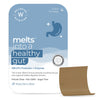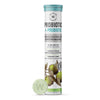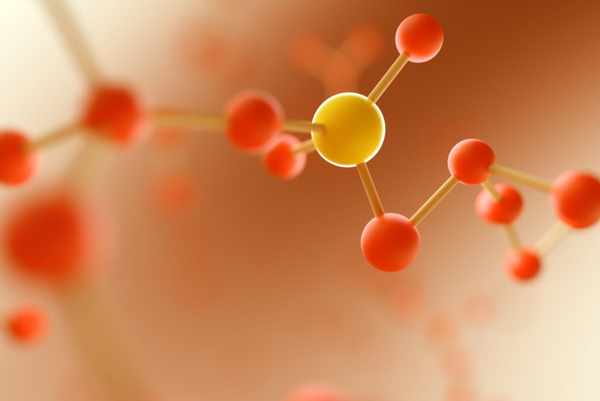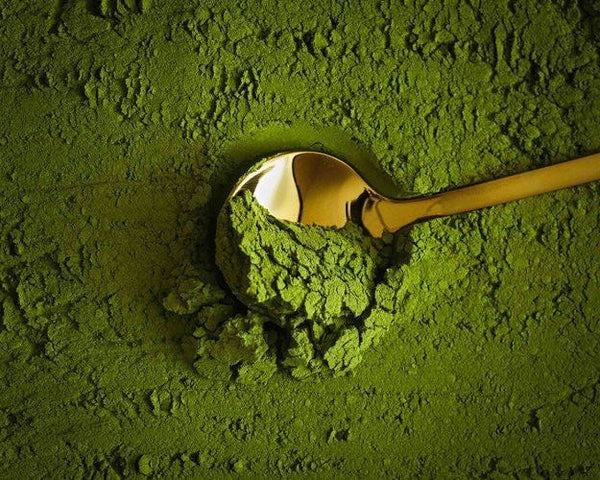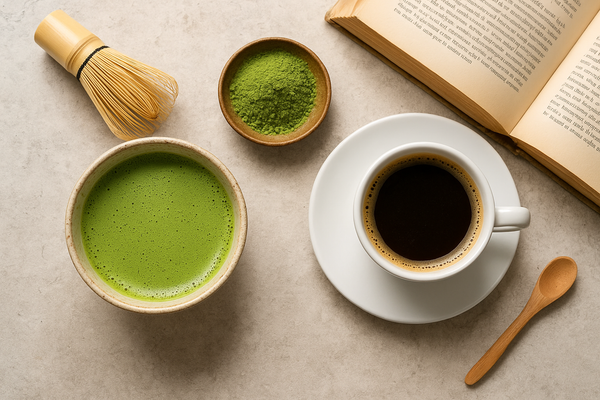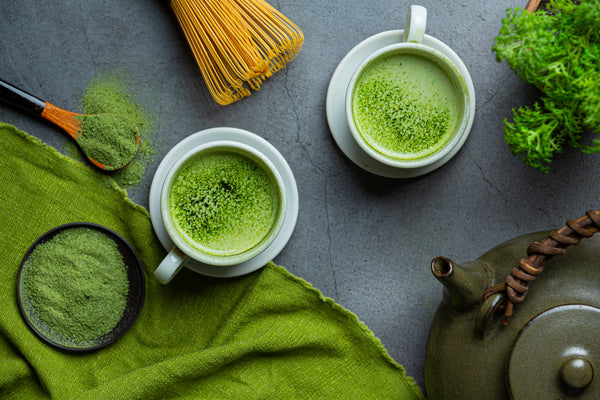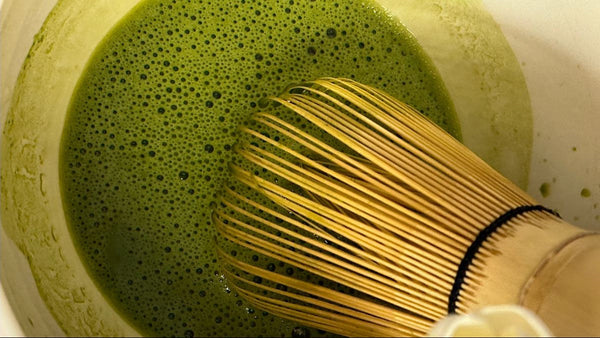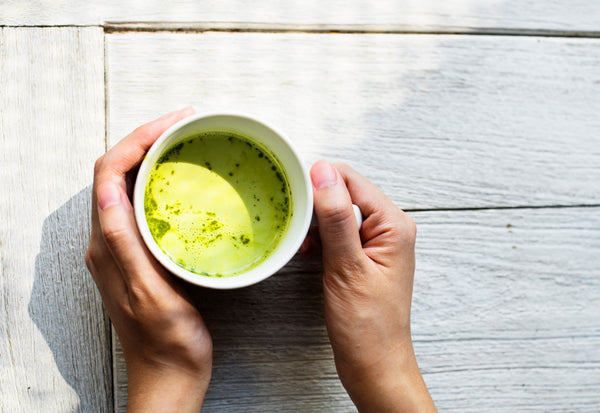What do you sense in your gut? Are you unhappy, bloated, acidic, or constipated? It is time for us to start focusing on the condition of our digestive system. Your gut literally determines how you will approach each day. Perhaps your stomach was unable to eliminate its internal waste today, leaving you feeling queasy, gassy, and bloated. You may have assumed that your stomach only aids in the digestion of the food you eat, but your gut actually performs a lot more functions than you may be aware of. When the gut is in good shape, it supports the health of the heart and brain, strengthens the immune system, balances hormones, encourages sound sleep, and facilitates digestion.
The organs that comprise your GI tract are, in order of connection, your mouth, esophagus, stomach, small intestine, large intestine, and anus. The gut not only aids in digestion but also general health. But a number of variables affect how well your gut works. Some work to ensure its seamless running, while others hinder it. To learn more about what our gut is trying to tell us and what we can do to improve it overall, scroll down.
Gut Flora: Your Gut’s Wellwishers
Although the gut may lead most of the important bodily functions, it relies on a few support systems for smooth functioning. For instance, the liver and pancreas aid the gut in the digestion process, while healthy gut flora helps in its overall functioning. The gut flora is a colony of microorganisms that reside in your gut. These are found in massive quantities, estimated at approximately 100 trillion microorganisms. They are a mix of healthy and unhealthy ones that live in harmony. A healthy gut is an indication of having a perfect balance of more friendly microbes than unfriendly ones. These good microbes also ensure that the bad ones do not outgrow them. This gut flora is influenced by our genes, infections, the type of food we eat, and the drugs and alcohol that we consume. An imbalance of the gut flora would invite a host of autoimmune diseases such as thyroid disorders, rheumatoid arthritis, and type 1 diabetes. It may also give rise to digestive disorders such as irritable bowel syndrome, Crohn’s disease, ulcerative colitis, etc.
Understanding the role of gut flora
Your gut is like one big factory with a lot of hard-working employees coordinating with each other to generate the best product on a daily basis. Some of these employees are also lazy, while others are capable of creating havoc and disturbing the harmony of these well-functioning factories. Thanks to the dedicated employees who manage these lazy and nasty ones and ensure smooth functioning irrespective of their presence. This factory can do well if we keep hiring such good employees and keep giving them incentives from time to time.
Probiotics are like your good employees, which you need to provide your factory (gut), and their incentives are the prebiotics (fiber), necessary for their growth. You can obtain these prebiotics and probiotics through natural foods or supplements.
Signs That Your Gut Is Unwell
1. Stomach upset:
Spending too much time in the washroom to get the bowels cleared or frequent visits to the loo are clear-cut signs of an unhealthy gut. Constipation, bloating, diarrhea, nausea, and indigestion are all indications that your digestive tract is having a hard time processing the food you ingested.
2. Unexplained fatigue:
Not eating enough due to stomach disturbances or eating food that doesn’t get well digested. In both cases, you will not be receiving sufficient calories (energy), making you feel tired all the time.
3. Sleep disturbances:
If your gut is sick, it might not let you sleep well. Symptoms like acidity, regurgitation, frequent burps, and an uncomfortable, gassy digestive tract can make it difficult to get a good night’s sleep. Sleep disturbance can be a sign of an imbalance in the gut flora, as a healthy gut flora is responsible for inducing a good night’s sleep since it produces serotonin, a brain chemical that regulates sleep.
4. Food cravings:
Do you constantly crave junk food? Beware that the bad microbes may even manipulate your eating habits by generating cravings for foods that are beneficial for their own growth, like sugar and processed foods. They do so by inducing dysphoria (making you feel uneasy) until you eat that particular food. They are not really concerned, however, with whether those foods are beneficial or harmful for their own host, i.e., you.
5. Unintentional weight changes:
An unhealthy gut may either cause you to lose or gain weight without your conscious effort to do so. Digestive problems can cause nutrient deficiency due to malnourishment, leading to weight loss in certain cases. While research has shown that certain bad bacteria produce obesity-promoting chemicals, thereby causing weight gain.
6. Skin problems & autoimmune conditions:
The main job of our skin is to act as a barrier and keep harmful pathogens from entering the body. Similarly, the skin lining our gut on the inside prevents the invasion of bacteria, viruses, parasites, and toxins into the bloodstream. It also allows vital nutrients to pass through at the same time. This selectively permeable intestinal lining is called an intestinal barrier. Certain factors, such as stress, antibiotics, alcohol, and certain medicines, can break this intestinal barrier and cause disruption in the gut system, called a leaky gut. When the gut becomes leaky, it will no longer be able to filter undigested food and various types of pathogens and food allergens. Once these pathogens reach the bloodstream, an alarm triggers the immune system to destroy them.
Sometimes the allergens are not really harmful to the body, but since the immune system is triggered, it tends to activate a fight response and ends up killing even the healthy cells, causing collateral damage and thus leading to inflammation and autoimmune responses like celiac disease. Such stress and inflammation in the body break the protective skin barrier and also decrease the skin’s ability to produce antimicrobial substances. Thus, inflammation in the body manifests itself as skin problems.
7. Migraine attacks:
Migraine strikes again? Maybe you need to look deep within. Several types of research have shown that migraines could be triggered by gastrointestinal disorders such as H. pylori infection, Irritable Bowel Syndrome, and Celiac Disease. An imbalance in healthy and unhealthy microbes of the gut (dysbiosis) seems to trigger the brain chemicals that induce pain and headaches, causing migraine attacks.
8 Mood Disorders:
There is a reason why our gut is called the second brain. Unlike the brain, it may not be able to generate thought, but it definitely communicates back and forth with it. For a long time, researchers and doctors have been associating IBS, constipation, and diarrhea with mood disorders such as anxiety and depression. But the latest research indicates that the gastrointestinal system sends a signal to the central nervous system that triggers mood changes.
Signs That Your Gut Is Doing Just Fine
1. Regular bowel movement:
A regular bowel movement pattern indicates that your gut is healthy. This means you have a routine of passing stools at almost the same time every day. No fixed frequency has been laid down, but passing stools between three times a day and three times a week is considered normal.
2. Healthy gut transit time:
If it takes too long for you to pass stools or you need to rush quickly to the loo to pass out stools after eating, both can be indicators of bad gut health. While the transit time (the time taken by the digestive system to consume food, process it, and eliminate waste products) may vary between individuals, it takes an average of 28 hours for a normal gut transit.
3. Comfortable bowel movement:
Passing out stool effortlessly indicates your gut is functioning well. If you have to put in a lot of pressure or experience a lot of pain or any kind of discomfort while passing your stools, you may be constipated or have any other gastric disorders.
4. A deflated tummy:
We are not talking about a zero figure here, but the absence of any trapped air or gas. We all know how it feels to be bloated; the lump of air trapped in your belly not only makes you uneasy but also affects your appetite and appearance. Flatulence is a way for your body to release this trapped gas. If you think you have been passing out gas too often, you might be having digestive issues such as ulcerative colitis or Crohn’s disease.
What Is Bad For Your Gut
1. Unhealthy Diet:
A healthy diet is essential for maintaining a balance between good and bad gut microbes. An unbalanced diet or nutrient intake such as high fat, high sugar, low fiber, low water intake, etc. could cause the bad microorganisms to flourish/multiply and the good ones to decrease in number. Such an imbalance then releases toxic molecules, and the pathogens may also disrupt the intestinal barrier, causing a leaky gut, which in turn gives rise to various other health disorders.
2. Ultra Processed Food(UPF):
Our gut flora alters depending on what we consume. In the past few years, the consumption of ultra-processed foods has been on the rise. UPF foods have ingredients added to them that are usually not used in our homes for cooking or food preparation. If you read food labels carefully, most of them will have ingredients like hydrogenated or esterified oil, protein isolate, gluten, maltodextrin, casein, etc. These act as flavoring, coloring, and emulsifiers that mimic the sensory properties of the natural product and are also used to suppress its original undesirable features (taste and odor). Increased UPF consumption is associated with a number of chronic diseases, such as obesity, diabetes, heart disease, and cancer. And the mechanism by which this UPF leads to such disorders is by altering the gut microflora.
3. Antibiotics:
Your doctor will likely recommend using antibiotics as your first line of treatment if you get an infection. But did you know the antibiotic given to kill the bad microorganisms in your body also kills the good ones? Unfortunately, this collateral damage takes place when one is on an antibiotic course, as the antibiotics cannot distinguish between the good microbes and the bad ones. So overuse or prolonged use of antibiotics disrupts the balance of your gut flora, inviting other diseases.
4. Hygiene Hypothesis:
A too-sterile environment can weaken your immune system and push you towards autoimmune diseases. Ever observed how the kids on the street or the ones raised on farms have better immunity than the ones in a metropolis? That’s because these farm-raised kids have been exposed to unclean environments or toxins, thereby triggering the immune system, helping it to mature, and stimulating it effectively to produce antibodies against the toxins, making the child stronger. Microorganisms that have evolved over thousands of years along with humans have been referred to as "old friends," as they were believed to train our immune system after their exposure to the human body. Being too clean decreases our chances of getting exposed to good microbes, a.k.a., old friends, thus causing more harm than good. According to the hygiene hypothesis, the immune system develops more quickly when children are exposed to germs and certain illnesses.
5. Alcohol:
The gastrointestinal tract and liver face the maximum consequences of excessive consumption of alcohol. Alcohol and its by-products cause damage to the gut by causing it to become leaky and generating inflammation. Such inflammation could then lead to alcohol-induced organ damage, and then a vicious cycle of health deterioration follows. Excessive alcohol consumption can also lead to bacterial overgrowth, disrupting the balance amongst the gut flora and also bringing about changes in the immune system present in the gut lining. In short, excessive alcohol consumption has a lot of negative impacts on the gut and its normal functioning and could possibly give rise to various disorders because of it.
6. Stress:
Did you ever feel the pressure to visit the restroom urgently due to a stressful event? Or did you feel those butterflies in your stomach when you were super excited about something? Your gut and brain are closely connected. Whenever there is a stressor, your body goes into a fight or flight response (defense or protection mechanism). So during a stressful event, the blood flow is directed toward the brain or muscle to deal with the incoming stressor, and so it shuts down its supply of blood flow for digestion. Also, the contractions of the digestive muscles are slowed, and the digestive secretions are reduced in the bargain. When the stressor is removed, the body resumes its normal functioning. However, long-standing stressors can interfere with the normal digestive processing of food, giving rise to Irritable Bowel Syndrome, ulcers, etc. So it's important to reduce our stress levels and indulge in stress-relieving activities like meditation and listening to music often to keep our gut happy.
What Is Good For Your Gut Health
1. Eating Habits:
If you want to blend coconut into a fine powder, you first need to break it into small pieces. Similarly, your body is able to break down your food into very small particles for absorption only when you first chew and break it down well in the mouth.
If you tend to eat hurriedly or do not chew your food well, there is a high chance of you developing indigestion, gas formation, bloating, constipation, etc. Eating rapidly or having distractions like watching television or talking while eating can pose a similar negative impact. So give your gut a better start so it can function optimally by opting for healthy eating practices. You can also add Apple Cider Vinegar to your daily routine. ACV for gut health has been widely used by many. The acetic acid in ACV also aids in constipation relief, promoting gut health.
2. Synbiotics:
Foods containing a mixture of probiotics and prebiotics are called synbiotics. Start eating foods rich in probiotics and prebiotics for better gut health. Probiotics are foods that contain helpful microorganisms, whereas prebiotics are fiber foods that help the probiotics develop and multiply. Some synbiotic foods include yogurt, whole grains, and sauerkraut.
3. Dietary Fiber:
Whether you are having constipation or diarrhea, high-fiber foods always come to the rescue of a distressed gut. Fibers come in two forms: soluble and insoluble. Fibers are most abundantly present in whole grains, nuts, pulses, fruits, leafy vegetables, and seeds. It is the part of food that our gut is unable to digest, but it has a plethora of advantages. Soluble fiber present in oats, barley, carrots, citrus fruits, beans, nuts, apples, etc. helps deal with diarrhea by absorbing water, forming a gel, and bulking up the stool. Insoluble fiber found in beans, nuts, whole wheat flour, wheat bran, berries, cabbage, broccoli, etc., on the other hand, increases stool bulk and speeds up bowel movements, thereby relieving constipation through its laxative effect.
4. Fermented Foods:
Diets rich in fermented foods have been shown to increase diversity in the gut flora and reduce inflammation rates. Since fermentation is brought about by microorganisms, fermented foods act as natural probiotics, contributing to good bacteria and helping them populate in your gut. Foods such as yogurt, kombucha, tempeh, cottage cheese, fermented vegetables, vegetable brine drinks, and Indian recipes using fermentation processes like idli, dhokla, dosa, etc. are good for your gut.
5. Hydration:
Sufficient water intake is critical for digestive health. It helps in digesting the food, absorbing nutrients, and flushing out waste and toxins from the system. Water also forms the basis of digestive juices. Insufficient hydration or dehydration can lead to constipation, which, in the long run, can lead to chronic constipation and the gut disorders associated with it. Apart from water, 20% of our daily fluid intake comes from hydrating foods such as melons and berries. You may add some watermelons, strawberries, bell peppers, cantaloupe, blueberries, muskmelon, cucumbers, spinach, tomatoes, and cauliflower to increase your overall fluid intake.
6. Exercise:
We all know how sedentary behaviors increase our risk for obesity and heart problems. To make things worse, sedentary behaviors can negatively impact your gut health too. Physical activity and physical exercise both help in reversing the changes in gut microbiomes that have been negatively affected due to obesity and diabetes. It also helps in creating a controlled environment for the gut flora, thereby reducing the incidence of inflammation. In addition, it has been observed that the gut flora of athletes has an enhanced function of tissue repair and is capable of providing more energy supply. This means exercise enhances the function of your gut flora.
Role of Gut Health Supplements
In addition to eating a nutritious diet, you can use gut health supplements to improve your digestive tract. Since the rise in gut-related disorders, the consumer market for gut health supplements has also grown. The increased demands have brought many gut supplements onto market shelves. So how do we choose the right supplements? It depends on what your exact requirements are. If you are looking for relief from constipation, go for supplements containing high fiber like prebiotics, that can feed your gut microbes to help you achieve clear bowels regularly. If you have a sensitive gut, you may want to opt for a supplement that is enhanced with synbiotics but is very gentle on your gut at the same time. You can also start taking apple cider vinegar as your early morning detox drink, which will not only help you detoxify but also help your digestive system function smoothly. You may also opt for supplements that give you ACV benefits, along with probiotics and digestive enzymes (the ones that aid in the breakdown of your food). Or you may simply opt for a synbiotic supplement that helps your gut microbes maintain a healthy balance by providing prebiotics and probiotics in a single dose. Adding a supplement for gut health is like gifting your distressed gut a happy digestion process.
Wrapping Up
Your gut does much more than just digest the food you eat. We need to support our gut by providing it with the necessary elements for its optimum functioning. We also need to keep a few things under control that hinder its operation. Gut health supplements are a great way to encourage the gut to perform at its best.
References
https://www.franciscanhealth.org/en/community/blog/gut-health-why-is-it-important
https://health.clevelandclinic.org/gut-health/
https://www.betterhealth.vic.gov.au/health/healthyliving/gut-health
https://www.ncbi.nlm.nih.gov/pmc/articles/PMC5483960/
https://cdhf.ca/en/how-does-your-gut-health-affect-your-skin/
https://harleystreetemporium.com/the-link-between-skin-and-gut-health-explained/
https://onlinelibrary.wiley.com/doi/full/10.1111/jgh.14976
https://www.frontiersin.org/articles/10.3389/fmicb.2019.03142/full
https://www.health.harvard.edu/newsletter_article/stress-and-the-sensitive-gut








